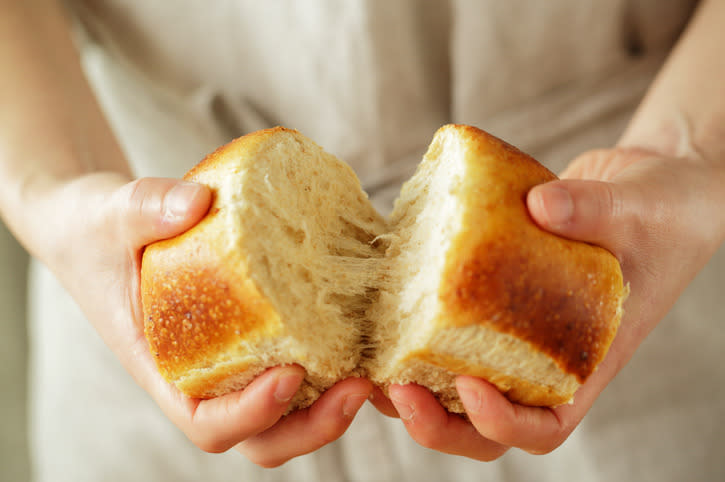The Great Bread Debate: To Fridge Or Not To Fridge?

[Photo: Getty]
There has been many a heated debate about where to put your bread. Should it be kept in the fridge for ultimate freshness or should it stay firmly in the bread tin?
People have deliberated over this issue for many years and we can now reveal that bread should not be kept chilled, but instead left to languish on your shiny kitchen counter - or wherever you like to store your loaves.
According to Harold McGee’s book On Food and Cooking: The Science and Lore of the Kitchen, the reason that bread goes stale is “a kind of settling and strengthening” that happens to its starch molecules, resulting in “toughening effects that are undesirable” - AKA the bread going dry.
But the drying out process happens more quickly in higher temperatures, surely? Not so, apparently.
“Water moves from starch granules in the bread into the spaces between the granules and this changes the nature of the starch, causing the molecules to crystallise and turn the bread hard,” explains Professor Adam Hart, expert at University of Gloucestershire and author of bacteria book ‘Life of Poo’.
“This can occur more rapidly at lower temperatures so storing bread in the fridge can speed this up.”
This was confirmed by an experiment run by seriouseats.com, which found that bread hardens more quickly from being in the fridge than left at room temperature.

[Photo: Getty]
However, Prof. Hart says that refrigerating your Hovis does have one plus point - it prevents the growth of mould.
If you want to avoid both mouldy and hard bread, he suggests storing your loaf in the freezer as this both protects it from green fur and slows the staling process.
He says: “Freezing a load in batches of several slices means that you can defrost just what you need without having it lying around to get stale or go mouldy.”
So, there’s your answer. Don’t stuff your bread in the fridge with your housemates’ weird-smelling leftovers, whack it in with your fish fingers and chisel away at it for weeks on end.


